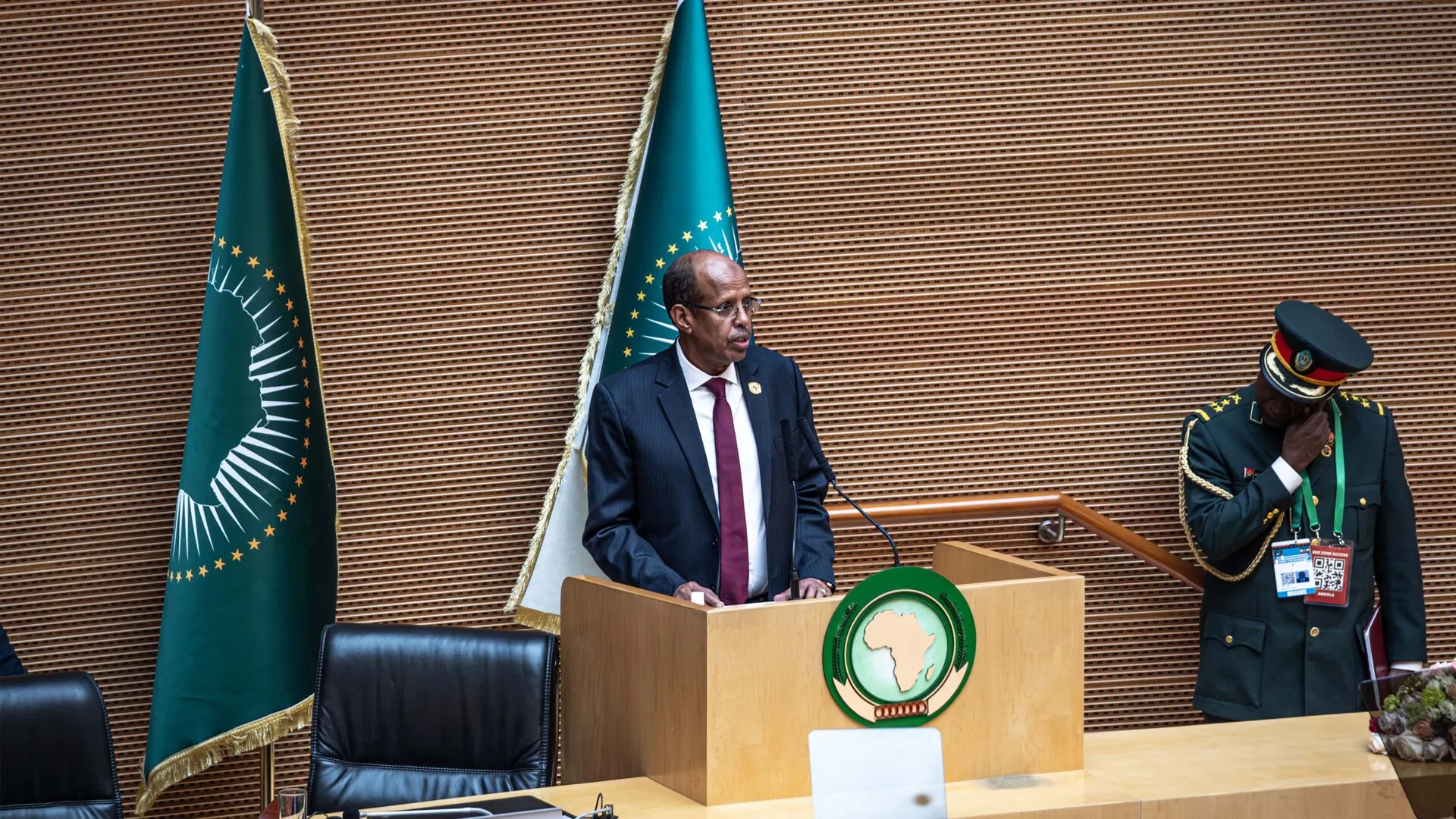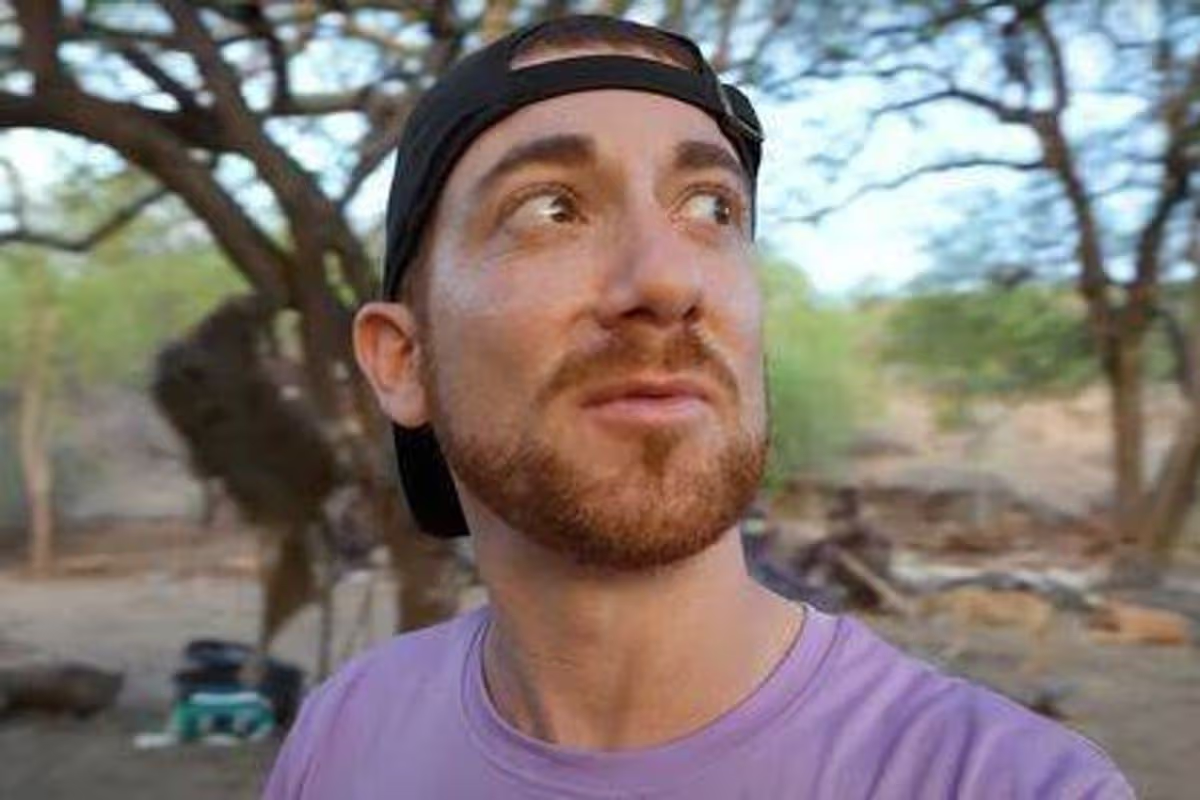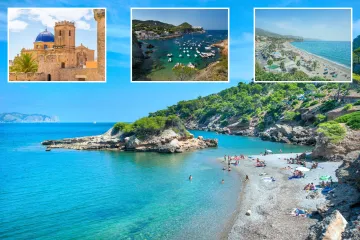Drew Binsky has visited all 197 countries in the world and has recently shared his top three African destinations, offering a comprehensive travel guide for those considering a trip to the continent
American YouTuber Drew Binsky, who has journeyed through all 54 African countries, has unveiled his top three picks, providing travel advice and handy tips for those eager to explore the continent. The content creator has set foot in all 197 countries worldwide, culminating his global tour with a visit to Saudi Arabia in 2021.
After recent trips to Australia and New Zealand with his parents, Drew has traversed every country in Africa and shared a snapshot of his five preferred destinations.
Drew hinted that his choices might surprise those contemplating a trip to Africa, remarking: “It might even make you book a flight out here to experience the adrenaline rush for yourself.”
Tanzania clinched the top spot on his African list, with Drew lauding the Hadzabe tribe as the “coolest people ever.”
Ethiopia claimed second position, with Drew confessing he was “obsessed” with the nation, while Namibia completed the top three, reports the Express.
Tanzania
The East African country of Tanzania, home to more than 66 million people, reigned supreme in Drew’s rankings, and the footage clearly illustrates why. This marked Drew’s fourth visit to the nation, where he admitted: “I could not get enough of this place right now,” according to the Express.
After spending time with the Hadzabe, among the last remaining hunter-gatherer communities in Africa, Drew ventured into Serengeti National Park to observe the zebra and wildebeest migration. His travels then led him to the famed Ngorongoro Crater in northern Tanzania, designated a UNESCO World Heritage Site.
He observed: “I’ve never seen a crater in my life that’s this big. I mean, it goes on forever.”
Drew also travelled to Mount Kilimanjaro, the world’s highest free-standing mountain, before heading to Zanzibar, which he described as having some of the “most beautiful beaches in the world.”
He continued: “If you can only visit one country in Africa, let it be Tanzania. It’s safe, the streets are clean, there are no scams here, everyone’s super nice, they speak English — you will absolutely love it.”
Ethiopia
Ethiopia, with a population exceeding 128 million, secured second place in Drew’s rankings. He praised the nation’s “many amazing cultures” and revealed he has visited nine times, urging travellers to explore beyond the capital, Addis Ababa.
Drew highlighted locations including Dire Dawa in the east and the ancient city of Harar, a UNESCO-recognised site steeped in Somali heritage.
He stated: “You have Lalibela, which is an amazing ancient Christian rock formation. And speaking of religion, Ethiopia is split between Islam and Christianity, and they have a really interesting branch of Christianity that’s really unique.”
The YouTuber also travelled to Tigray in northern Ethiopia, trekking to ancient churches carved into the mountainsides. His journey included the town of Gandha, notable for its significant Jewish community, and the Omo Valley in south-western Ethiopia, home to “some of the most incredible tribes in the world with fascinating traditions.”
He added: “Ethiopia has the best food in Africa. The best coffee in the world is there. I can go on and on about Ethiopia.”
Namibia
Completing Drew’s top three was Namibia, a south-west African nation with a population of just under three million. It is the world’s second least densely populated country, behind only Mongolia.
Drew said: “It’s one of the only places in the world where you can find beautiful sand dunes that intersect exactly with the ocean. Now I can finally see why everyone always falls in love with Namibia — this place is as good as it gets.”
His trip included a visit to Etosha National Park before heading to Windhoek, which he described as a “cool capital city.”
He remarked: “The people are so lovely and friendly, they speak great English.”
Lastly, Drew visited Sossusvlei, praising its “incredible nature” and the sight of trees emerging from the sand dunes. He added: “And of course, you have the Himba tribe near the Angola border in Namibia. They have the clay hair, and they’re just so cool. I really love visiting the tribes in Africa — it’s so enriching and so amazing to appreciate their cultures and traditions.”






